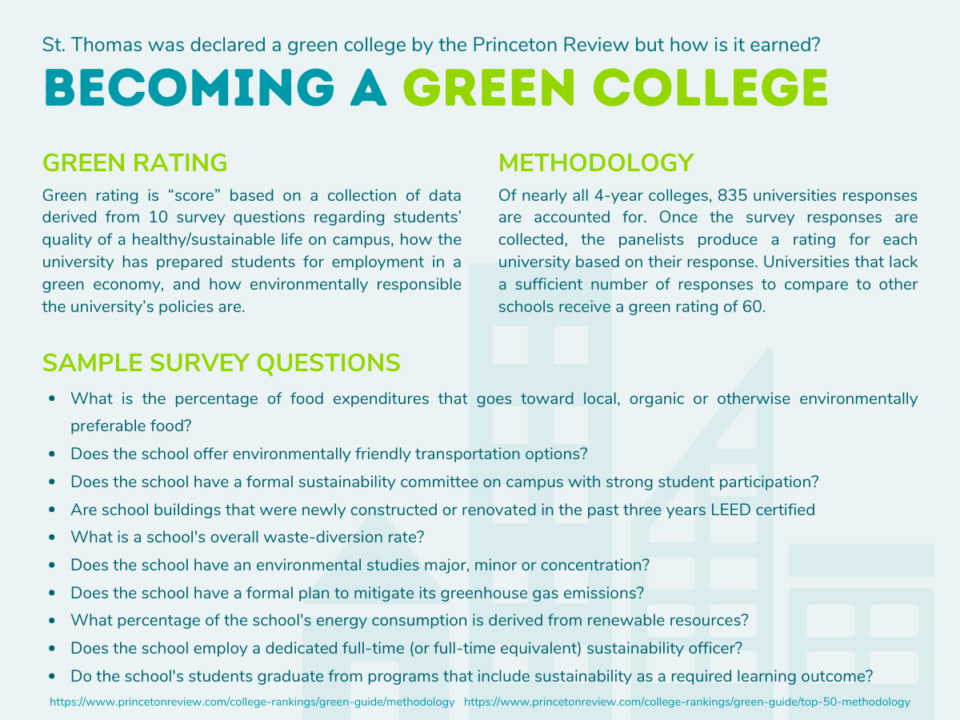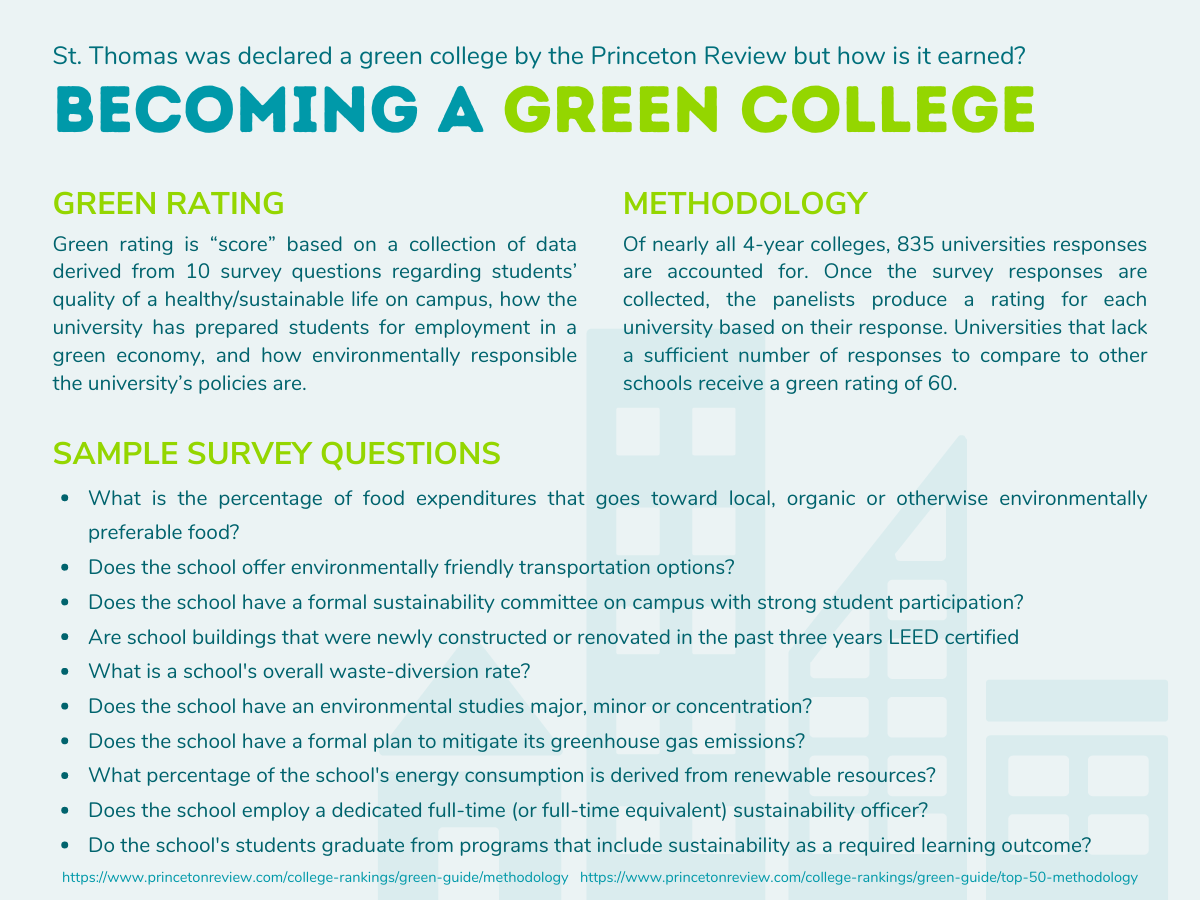
The University of St. Thomas placed in the Princeton Review’s Top Green Colleges for the fourth year in a row. St. Thomas has been scoring higher on the list in each of the last four years.
“It’s credit to a team of students and everyone else involved in the sustainability initiatives on campus,” Sustainability Club President Josh Mounsey said.
Mounsey said he is not surprised that St. Thomas has climbed up the rankings once again.
“They are doing a phenomenal job with the sustainability-led initiatives,” Mounsey said. “As a result of that we are obtaining sufficient results.”
One of the groups leading St. Thomas’ movement towards carbon neutrality is facilities management. Jim Brummer, St. Thomas vice president for Facilities Management, is proud of the impact they have made.
“I think it’s great the university is receiving recognition for all the sustainability efforts we’ve been working on over the years,” Brummer said.
Brummer works with his team to ensure facilities are in line with the university’s sustainability initiatives. The team has implemented a number of standards that must be met for future projects on campus.
The most notable of these standards is that any new building over 25,000 square feet must go through LEED Silver certification or higher. So far, three buildings have achieved LEED certification: Tommie North, Tommie East, and the Anderson Student Center.
Going forward, Mounsey wants to focus on what individuals can do to decrease their impact on the environment. He said transportation, recycling initiatives, and water usage are three things everyone could be more conscious of to make a positive change.
“We need to take action whether or not it’s small,” Mounsey said.
Regarding larger-scale initiatives around campus, Brummer said facilities have plans in place to continue improving energy usage.
These initiatives include changing lights to LED’s, replacing equipment with more energy efficient products and a commercial energy efficiency program with Excel Energy.
“It’s about incremental improvements that are gaining ground towards that ultimate achievement of carbon neutrality,” Brummer said.
The march towards carbon neutrality requires everyone to do their part by prioritizing sustainability.
“Everyone at this institution should find ways to enlighten yourself to take action,” Mounsey said. “Just small actions will go a long way.”
Derek Badger can be reached at badg7629@stthomas.edu.

